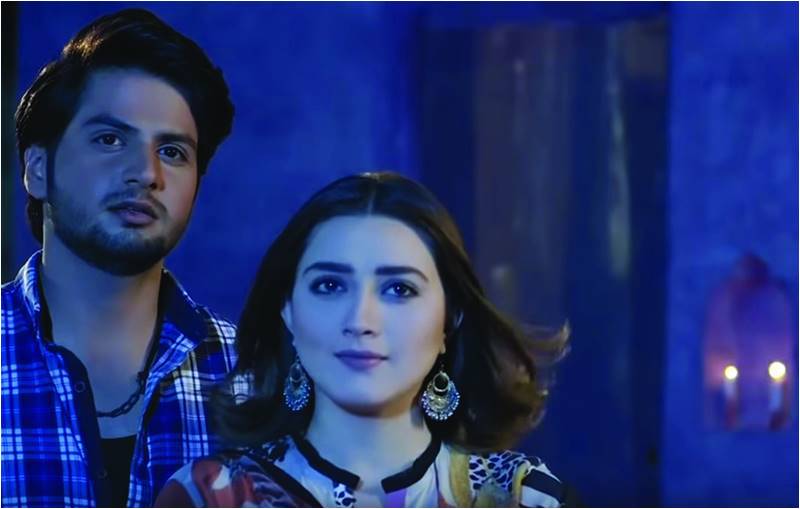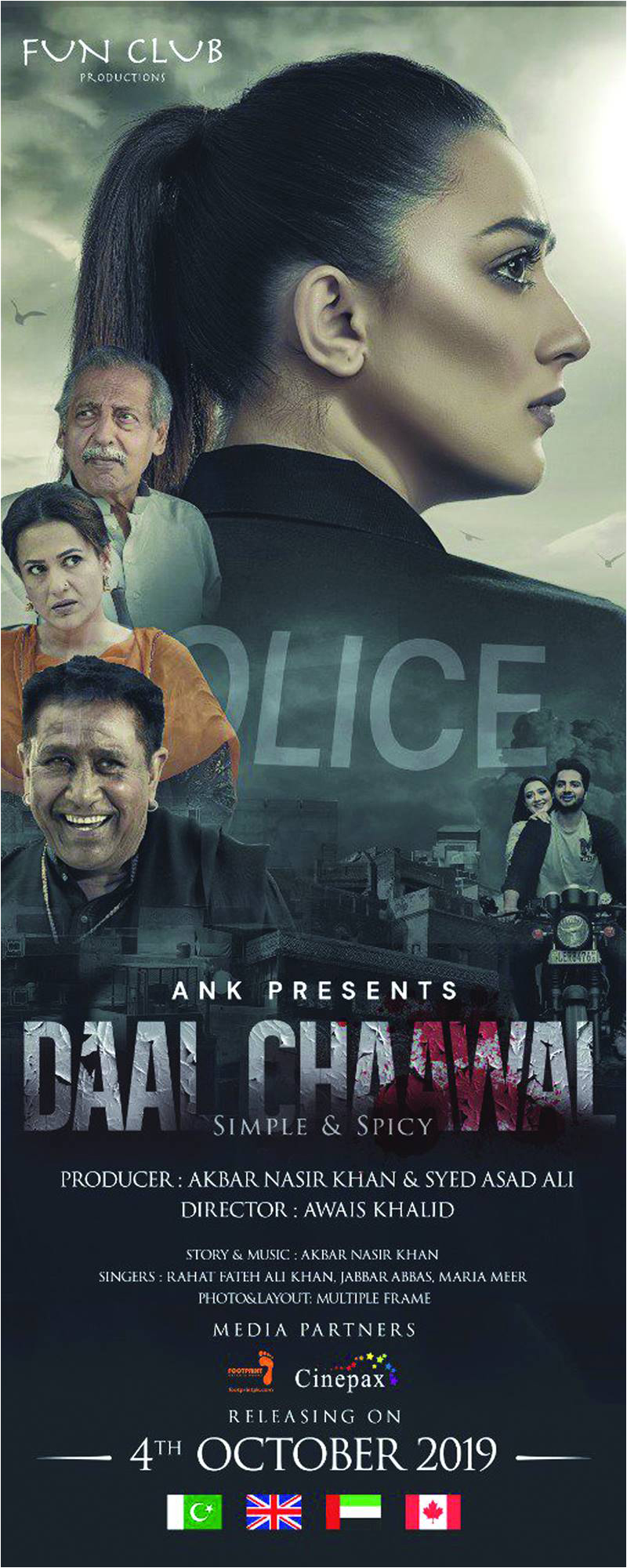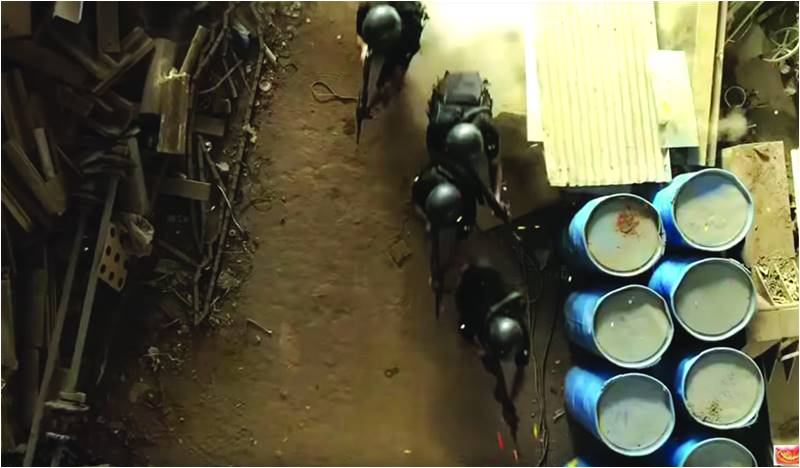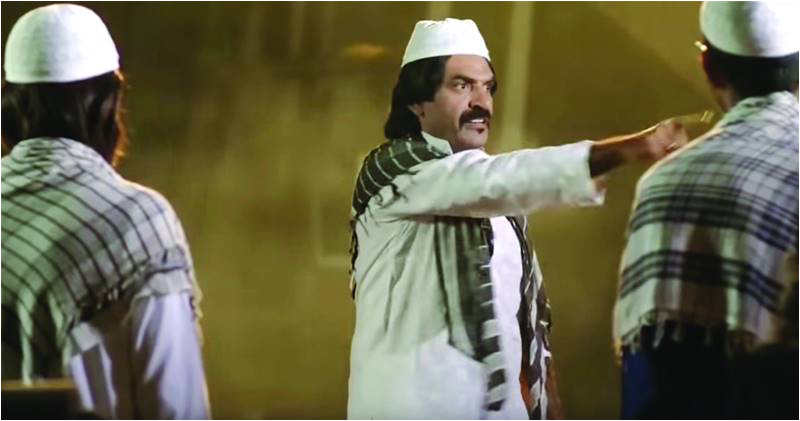
After successive weeks of high-profile Hollywood releases, culminating in the epic Joker last week, we are back to Lollywood, looking to extricate the best of what the local cinema has to offer. Indeed, we do tend to clutch at straws with that much more intensity after experiencing the zenith of global cinematic excellence.
Again, we don’t expect Lollywood to right away jump to the apogee, and do realize that taking Pakistani cinema to the next level requires time and patience. But what is also a fact is that we’ve been saying something along the same lines for the entirety of the ongoing decade.
The 2010s might go down in history as the decade of the revival of Pakistani cinema – that never came. More often than not, our local filmmakers have a list of excuses longer than the depth of the storyline that their film is supposed to showcase.

Given that quality writing does not require abundance of resources or technical expertise, more often than not it’s just a cop-out for not really putting in the requisite effort or dedication that the art really needs. And the latest flick guilty of that is one that is based on cops – or perhaps was going to be before it developed into a hotchpotch of mediocrity.
Those following the developments behind the scenes knew that Daal Chawal had been on the burner for quite some time. However, in a year which dished up some truly unpalatable films, Daal Chawal manages to stand out in its sheer tastelessness. And it all boils down to the filmmaker’s complete inability to perform basic tasks required in the production of a professional movie.

Akbar Nasir Khan, a serving Deputy Inspector General of Police, is the Chief Operating Officer of Punjab Safe Cities Authority. He’s also the writer and producer of Daal Chawal, a film that was billed as a tribute to the Punjab Police – an admirable undertaking which the film completely pours water over.
A film that should’ve been all about the sacrifice and vigilance of Punjab Police, ends up being aimless and all over the place, thanks to its needless forays into plots that should have had nothing to do with the core storyline.
And so instead of showcasing the much touted style, efficiency and predicaments faced by Punjab Police, the audience is simultaneously served a side dish of an emotionless love story, making a pointless khichri out of Daal Chawal.
Ahmad (Ahmad Mujtaba) moves to Lahore after completing his Bachelors from his village. He wants a decent job, but obviously can’t get one without contacts. Ahmad is staying at his Khaala’s, with his Khaalu (Salman Shahid) running a thela (vendor’s cart) of daal chawal. Khaalu has a fondness for poetry and a great sense of humour.
With persistent failures, Ahmad starts to get bitterer every day. Not paying heed to his Khaalu’s advice, he refuses to run the thela with him. And then he meets Soniya (Momina Iqbal).

Soniya is Khaala’s landlady, and an officer in Punjab Safe City Authority – this is the Inception of product placement right here! Soniya’s father was a slain police officer.
With the ingredients of the enforced love story now in place, it’s time for it to forcibly blossom, without any inkling of chemistry.
Then enters Pehlwan Jee (Shafqat Cheema), who is a goon and doubles up as a terror facilitator. Meanwhile, Ahmad continues his multi-faceted struggles, which culminate in a suicide attack in the city. Cue police investigations, which is the perfect excuse for the filmmakers to underline the technological excellence of Punjab Police.
Given the scores of such films based on the military, the police would feel that they too deserve a skewed movie based on their repertoire and achievements. However, the butchery of Daal Chawal would leave Punjab Police feeling hard done by.
Awais Khalid is the director of this directionless venture. Take out veterans Shafqat Cheema and Salman Shahid, and the film offers an assortment of acting failures.
The soundtrack is comfortably the only redeeming factor, with four songs by Jabbar Abbas, Rahat Fateh Ali Khan and Maria Mir leaving their mark. Hum Zinda Hain by RFAK is the highlight.
But as far as the film itself is concerned, the makers owe Punjab Police and the cinemagoers respective apologies. The latter they can conjure jointly with a growing list of filmmakers.
Again, we don’t expect Lollywood to right away jump to the apogee, and do realize that taking Pakistani cinema to the next level requires time and patience. But what is also a fact is that we’ve been saying something along the same lines for the entirety of the ongoing decade.
The 2010s might go down in history as the decade of the revival of Pakistani cinema – that never came. More often than not, our local filmmakers have a list of excuses longer than the depth of the storyline that their film is supposed to showcase.

Given that quality writing does not require abundance of resources or technical expertise, more often than not it’s just a cop-out for not really putting in the requisite effort or dedication that the art really needs. And the latest flick guilty of that is one that is based on cops – or perhaps was going to be before it developed into a hotchpotch of mediocrity.
Those following the developments behind the scenes knew that Daal Chawal had been on the burner for quite some time. However, in a year which dished up some truly unpalatable films, Daal Chawal manages to stand out in its sheer tastelessness. And it all boils down to the filmmaker’s complete inability to perform basic tasks required in the production of a professional movie.

In a year which dished up some truly unpalatable films, Daal Chawal manages to stand out in its sheer tastelessness
Akbar Nasir Khan, a serving Deputy Inspector General of Police, is the Chief Operating Officer of Punjab Safe Cities Authority. He’s also the writer and producer of Daal Chawal, a film that was billed as a tribute to the Punjab Police – an admirable undertaking which the film completely pours water over.
A film that should’ve been all about the sacrifice and vigilance of Punjab Police, ends up being aimless and all over the place, thanks to its needless forays into plots that should have had nothing to do with the core storyline.
And so instead of showcasing the much touted style, efficiency and predicaments faced by Punjab Police, the audience is simultaneously served a side dish of an emotionless love story, making a pointless khichri out of Daal Chawal.
Ahmad (Ahmad Mujtaba) moves to Lahore after completing his Bachelors from his village. He wants a decent job, but obviously can’t get one without contacts. Ahmad is staying at his Khaala’s, with his Khaalu (Salman Shahid) running a thela (vendor’s cart) of daal chawal. Khaalu has a fondness for poetry and a great sense of humour.
With persistent failures, Ahmad starts to get bitterer every day. Not paying heed to his Khaalu’s advice, he refuses to run the thela with him. And then he meets Soniya (Momina Iqbal).

Soniya is Khaala’s landlady, and an officer in Punjab Safe City Authority – this is the Inception of product placement right here! Soniya’s father was a slain police officer.
With the ingredients of the enforced love story now in place, it’s time for it to forcibly blossom, without any inkling of chemistry.
Then enters Pehlwan Jee (Shafqat Cheema), who is a goon and doubles up as a terror facilitator. Meanwhile, Ahmad continues his multi-faceted struggles, which culminate in a suicide attack in the city. Cue police investigations, which is the perfect excuse for the filmmakers to underline the technological excellence of Punjab Police.
Given the scores of such films based on the military, the police would feel that they too deserve a skewed movie based on their repertoire and achievements. However, the butchery of Daal Chawal would leave Punjab Police feeling hard done by.
Awais Khalid is the director of this directionless venture. Take out veterans Shafqat Cheema and Salman Shahid, and the film offers an assortment of acting failures.
The soundtrack is comfortably the only redeeming factor, with four songs by Jabbar Abbas, Rahat Fateh Ali Khan and Maria Mir leaving their mark. Hum Zinda Hain by RFAK is the highlight.
But as far as the film itself is concerned, the makers owe Punjab Police and the cinemagoers respective apologies. The latter they can conjure jointly with a growing list of filmmakers.

